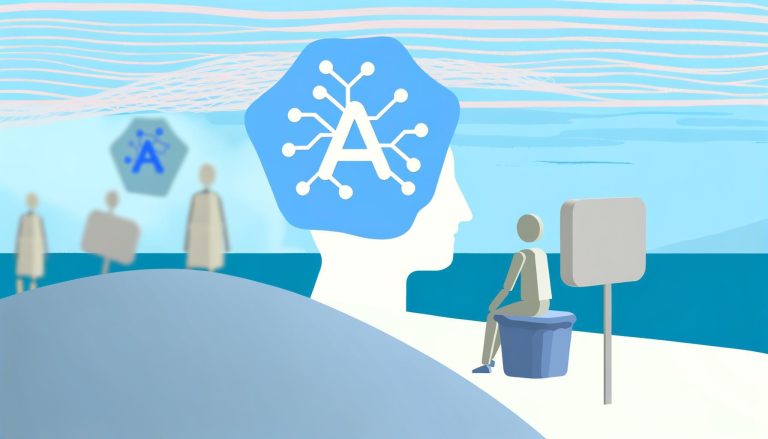In recent years, the advent of big data has significantly impacted various fields, including mental health research. Big data refers to the vast volumes of information generated through digital footprints, social media interactions, medical records, and numerous other sources. Leveraging this data to advance mental health research has opened new avenues for understanding, diagnosing, treating, and even preventing mental health disorders. This comprehensive guide will examine the role of big data in mental health research, demonstrating its potential benefits and exploring practical applications.
The Importance of Big Data in Mental Health Research
Mental health issues have long been a significant public health concern. Traditional research methods, though valuable, often come with limitations in scope and depth. Big data, on the other hand, offers the potential to overcome these limitations by integrating vast amounts of information from various sources, providing a more comprehensive understanding of mental health.
Enhancing Diagnosis and Early Detection
One notable benefit of big data in mental health is its ability to enhance diagnosis and early detection of mental health conditions. Traditional diagnostic processes often rely heavily on patient self-reporting and clinician intuition, which may sometimes lead to misdiagnosis or missed early signs.
- Data Integration: By analyzing data from multiple sources such as social media, wearable devices, and electronic health records, researchers can identify subtle patterns and risk factors that may not be apparent in clinical settings.
- Predictive Analytics: Advanced algorithms and machine learning models can predict the likelihood of developing mental health conditions based on historical data, enabling early interventions and personalized treatment plans.
Personalized Treatment
Another crucial aspect where big data plays a pivotal role is in personalized treatment. Traditional treatment plans are often generalized and may not work effectively for everyone.
- Precision Medicine: With big data, physicians can create individualized treatment plans by considering a patient’s unique genetic makeup, lifestyle, and environmental factors, ensuring a higher probability of treatment success.
- Real-Time Monitoring: Utilization of data from wearable devices and mobile apps allows continuous monitoring of patients, providing real-time feedback and adjustments to treatment plans when necessary.
Applications of Big Data in Mental Health Research
The integration of big data into mental health research isn’t just theoretical but has practical applications that have already started showing promising results.
Social Media Analysis
People frequently express their thoughts and emotions on social media platforms like Twitter, Facebook, and Instagram. Researchers have begun analyzing these posts to uncover valuable insights into mental health trends and individual conditions.
- Sentiment Analysis: Utilizing natural language processing (NLP) tools, researchers can analyze the sentiment of social media posts to detect signs of depression, anxiety, or other mental health issues.
- Behavioral Patterns: Changes in posting frequency, content, or engagement levels can indicate a shift in mental health status, enabling early interventions.
Electronic Health Records (EHR)
Electronic Health Records are a vital resource for big data in mental health research. EHRs provide comprehensive patient histories, including diagnoses, treatments, and outcomes.
- Longitudinal Studies: By analyzing EHR data over time, researchers can identify long-term trends and factors contributing to mental health conditions.
- Comparative Analysis: EHRs allow for comparing treatment efficacy across diverse patient populations, leading to more robust conclusions and recommendations.
Wearable Technology
Wearable technology, such as fitness trackers and smartwatches, offers continuous monitoring of physiological data like heart rate, sleep patterns, and physical activity levels.
- Biometric Data: Changes in biometric data collected by wearables can be correlated with mental health conditions, providing objective measures for diagnosis and treatment adjustments.
- Activity Patterns: Monitoring daily activity and sleep quality helps identify lifestyle factors affecting mental health, guiding personalized interventions.
Mobile Health Apps
Mobile health apps designed for mental health support offer a treasure trove of data that can be used for research purposes.
- User Interaction: Data on how users interact with mental health apps, including their frequency of use, types of activities they engage in, and self-reporting metrics, can provide insights into behavioral patterns and treatment effectiveness.
- Passive Data Collection: Many mobile apps passively collect data on phone usage, location, and other factors, which can be analyzed to understand the relationship between mental health and environmental influences.
Genetic Data Integration
The field of genomics has also greatly benefited from big data, particularly in understanding the genetic basis of mental health disorders.
- Genetic Markers: By analyzing large datasets of genetic information, researchers can identify markers associated with specific mental health conditions.
- Gene-Environment Interactions: Big data enables the study of interactions between genetic predispositions and environmental factors, providing a more comprehensive perspective on mental health.
Benefits and Practical Tips for Researchers
While the advantages of big data in mental health research are clear, researchers must adopt best practices to maximize these benefits.
Ensuring Data Privacy and Ethics
Data privacy and ethical considerations are paramount when dealing with sensitive mental health information:
- Informed Consent: Ensure participants are fully informed about how their data will be used and obtain explicit consent.
- Anonymization: Employ techniques to anonymize data, protecting individuals’ identities and reducing the risk of data breaches.
- Compliance: Adhere to legal frameworks and guidelines such as GDPR, HIPAA, and other relevant regulations.
Data Quality and Standardization
High-quality, standardized data is crucial for reliable conclusions:
- Data Cleaning: Implement robust data cleaning processes to eliminate errors, duplicates, and inconsistencies.
- Standard Protocols: Use standard protocols and formats for data collection, ensuring compatibility across different datasets and research efforts.
Interdisciplinary Collaboration
Mental health research benefits from collaboration across various disciplines:
- Diverse Expertise: Collaborate with experts from fields such as psychology, data science, epidemiology, and artificial intelligence to leverage diverse perspectives and skills.
- Shared Resources: Utilize shared databases, tools, and frameworks to facilitate collaborative research and maximize resource utilization.
Conclusion
Big data is revolutionizing the field of mental health research, offering unprecedented opportunities for early diagnosis, personalized treatment, and comprehensive understanding of mental health disorders. By integrating data from social media, electronic health records, wearable technology, mobile apps, and genetic studies, researchers can uncover valuable insights that were previously unattainable.
Embracing best practices around data privacy, quality, and interdisciplinary collaboration will ensure the responsible and effective use of big data in mental health research. As we continue to harness the power of big data, the future of mental health research looks promising, paving the way for innovative solutions and improved outcomes for individuals worldwide.
For those interested in monitoring their mental health through journaling and tracking moods, habits, and goals, consider exploring the features available in the Zenora App. This tool can provide valuable data for personal reflection and growth, aligning with the advancements discussed in this article.





